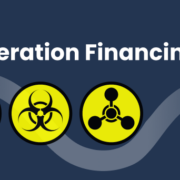Course Description
This course trains staff on businesses’ obligations under the Australian Privacy Act and the Australian Privacy Principles (APPs)
Product Description
Dealing with personal information
Privacy breaches make headlines all the time. But while everyone thinks they know what privacy is, understanding how the laws apply to our work, clients and customers is another matter.
Salt Compliance Privacy training breaks down the privacy requirements into language that learners can understand, supported by a rich visual design.
The introductory module summarises the key concepts surrounding how we handle personal information at work. Subsequent modules explore the Australian Privacy Principles (APPs) in more detail. The final module focuses on
credit reporting obligations.
Scenarios and case studies appear throughout the modules, helping to place the training into vivid practical context.
The course contains a fresh look and feel that is intended to attract learners’ active engagement throughout the training, without overwhelming or distracting them from the concepts.
Who should do this training?
This training is designed for staff at any level within an organisation that comes in contact with private information or could be at risk of breaching Australian privacy laws.
It is designed to cater for a diverse audience and all levels of staff, and addresses all 13 Principles in plain language.
If your organisation has any specific privacy requirements, the Salt Privacy standard format can be customised to your individual needs. If you are in the health sector, please enquire about our Health Privacy course.
Custom courses
If your organisation has any specific privacy requirements, the Salt Privacy standard format can be customised to your individual needs. If you are in the health sector, read about Salt Health Privacy.
- Generic course
- Health Privacy
For more information on other GRC Solutions’ privacy training resources:
Australia
Privacy for Schools – Covering the Privacy Act and the Australian Privacy Principles as they apply to schools
Health Privacy – Health businesses collect and maintain sensitive personal information
Australia – Financial Services
Financial Services Privacy Training – covering the Privacy Act and the Australian Privacy Principles
Credit Reporting – covering the Credit Reporting Act
Health Privacy
New Zealand
Privacy – New Zealand – covering privacy in New Zealand under the 2020 updates to the law
Europe
General Data Protection Regulation – covering the GDPR – which has global implications
Singapore
Data Protection Singapore – covering the Personal Data Protection Act 2012 and also the implications of the GDPR
Malaysia
Data Protection Malaysia – covering the Personal Data Protection Act 2010 and also the implications of the GDPR
California
California Consumer Privacy Act
Course Outline
- Module 1: Introducing privacy
- Module 2: Management and collection
- Module 3: Use or disclosure
- Module 4: Storage, access and correction
- Module 5: Credit reporting obligations







